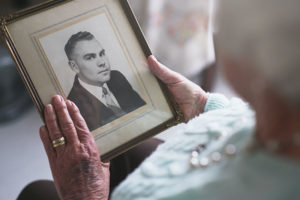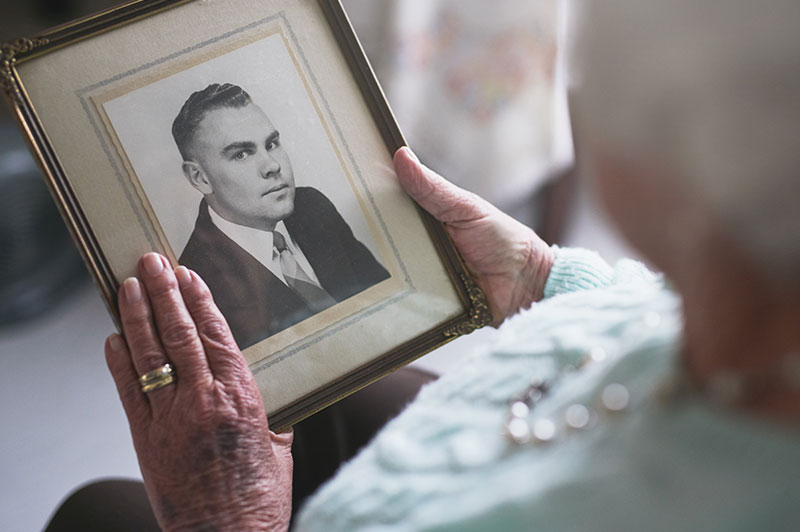
In his documentary about grief, George Shelley uses an analogy of glitter. Toss a handful of glitter into the air, and it is going to settle into all of the crevices and cracks of the room, impossible to fully sweep up and remove. Individuals who have lost a loved one can relate. Yet in certain instances, grief can be so overwhelming that it can lead to a serious and aptly-named condition: broken heart syndrome.
Broken heart syndrome is a very real physical condition due to the intense stress experienced in certain forms of grief (such as one spouse losing the other after decades of marriage). The medical term is takotsubo cardiomyopathy, a temporary enlargement of the heart that prevents it from pumping blood effectively.
And, it is more prevalent than you may realize. A number of high-visibility examples include Johnny Cash, who passed away just four months after the loss of his wife, and George H.W. Bush, who became ill after the loss of his wife of 73 years.
Researchers have been studying the impact of grief on a person’s physical health for decades. In 1995, for example, the term “widowhood effect” was coined to describe the thirty percent rise in mortality rate faced by those who lost a longtime partner. Other scientists determined a connection between the immune system and grief. Some surviving spouses simply lose the will to live.
Help prevent this condition and ease the pain of grief for someone you love with these tips.
- Encourage engagement in comforting and enjoyable activities.
- Seek out a grief support group, whether online or in-person.
- Ensure proper hydration, balanced nutrition, and sufficient rest.
- Offer a compassionate ear and promote a healthy expression of emotions.
- Remind them of the reasons to keep living and honoring their loved one’s legacy.
- Encourage conversations about the person who is deceased, fostering shared memories.
- Suggest seeking counseling for managing intense emotions effectively.
A trained caregiving companion from Compassionate Care Home Health Services is also a wonderful way to help a senior who is grieving. We offer socialization and lots of opportunities for conversations and reminiscing, as well as engaging activities, transportation wherever a person needs to go, and so much more. Contact us online or call us at 877.308.1212 for a complimentary in-home consultation to find out more about our top-rated in-home care services in Saginaw, Cadillac, Alpena, West Branch and surrounding communities.

